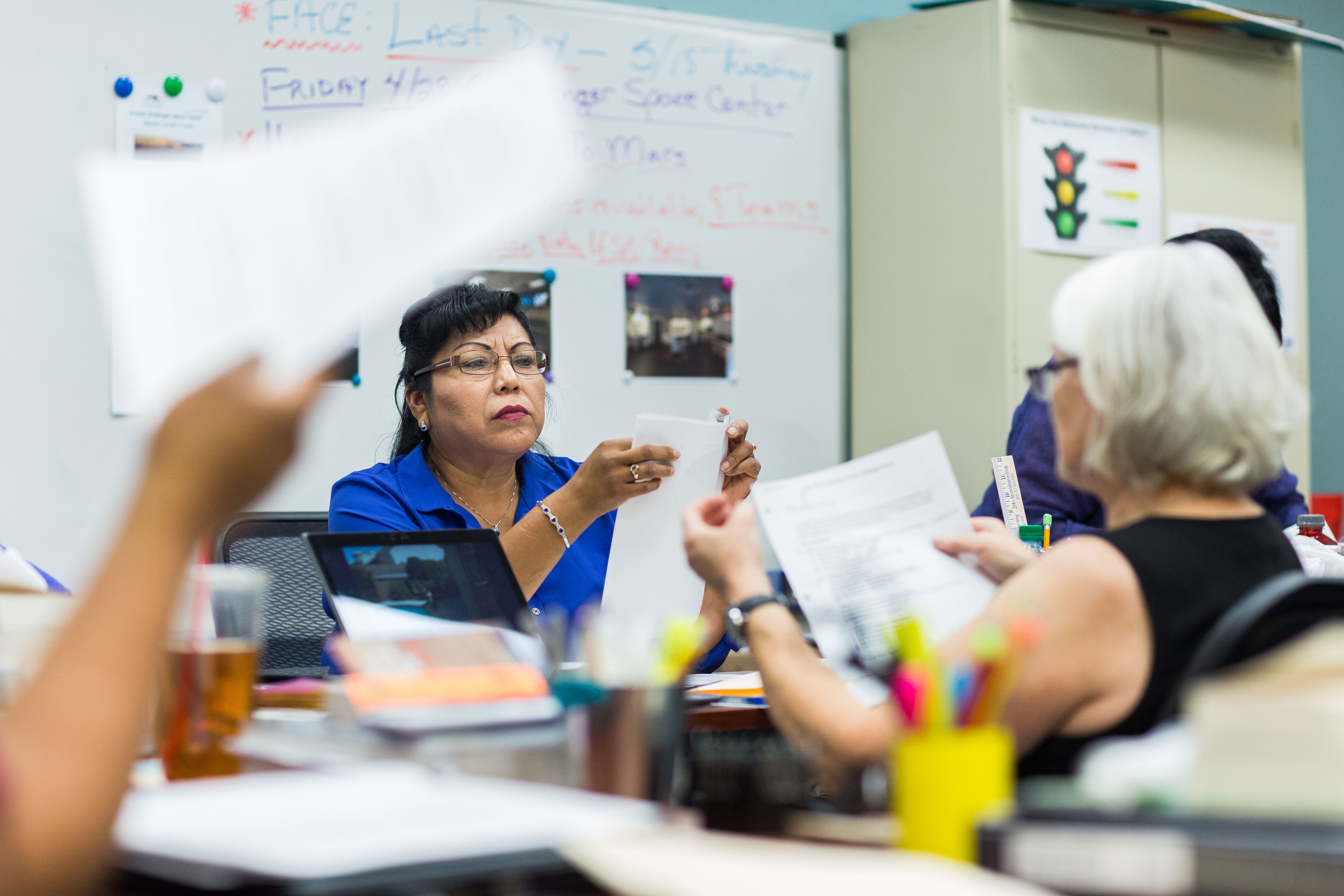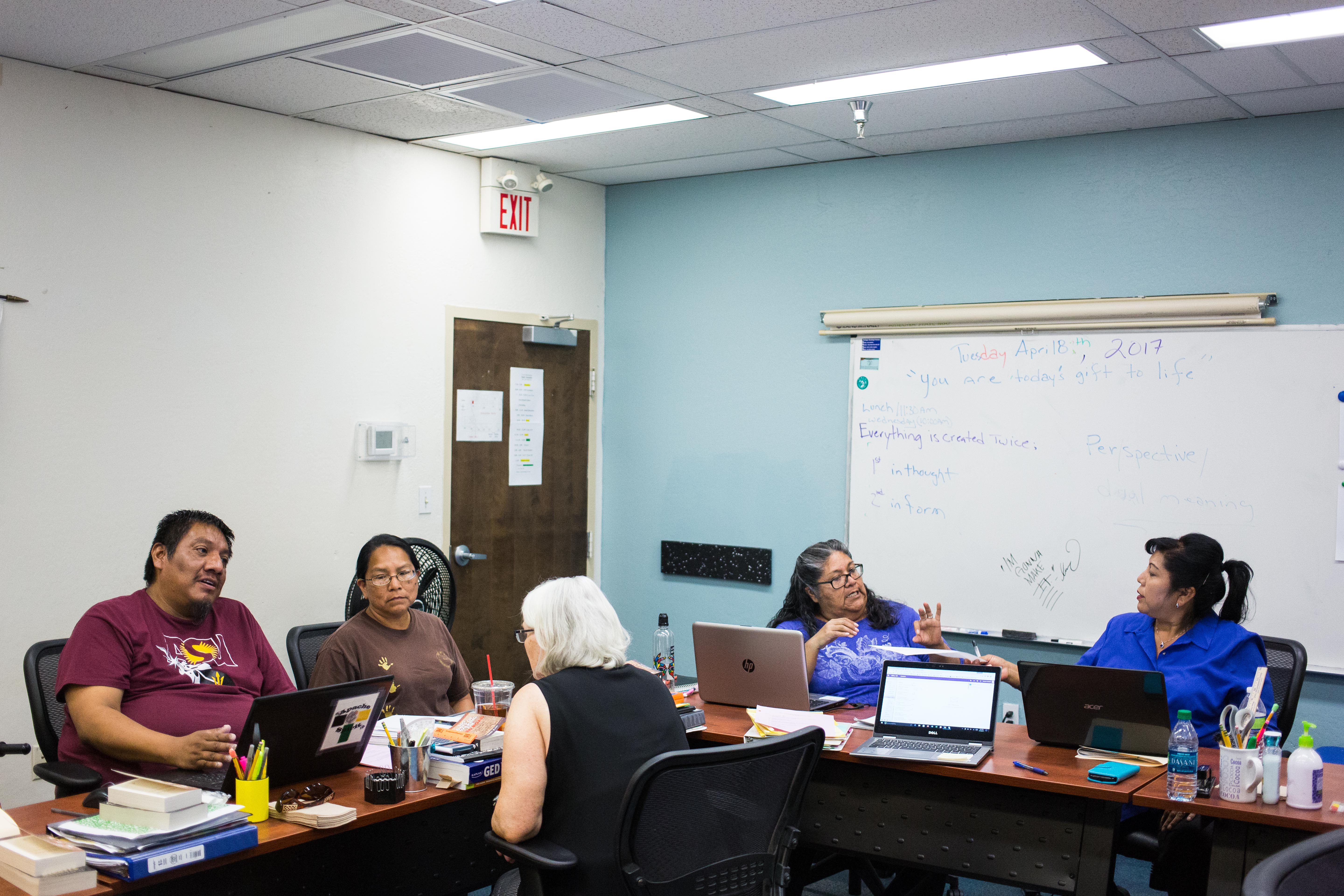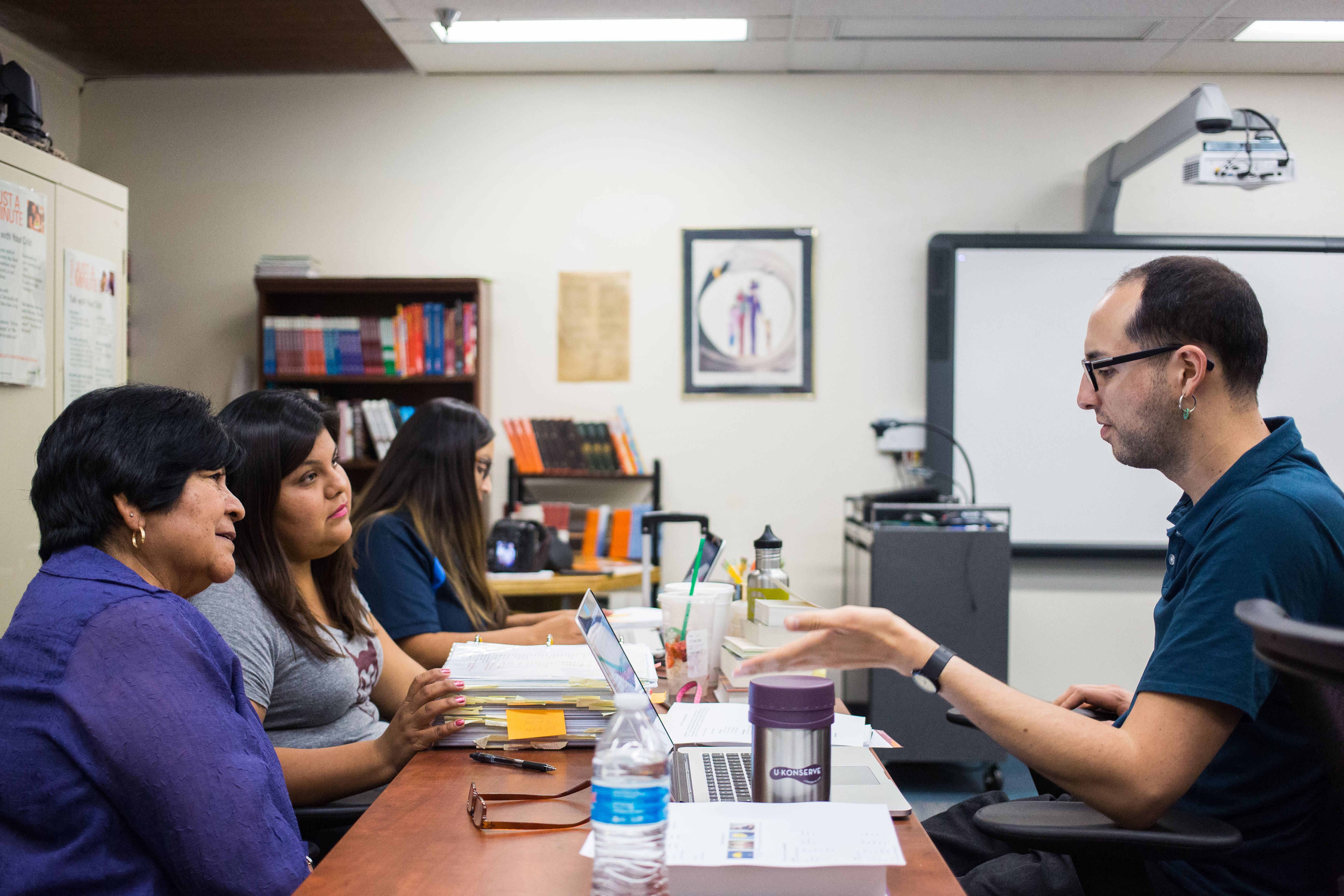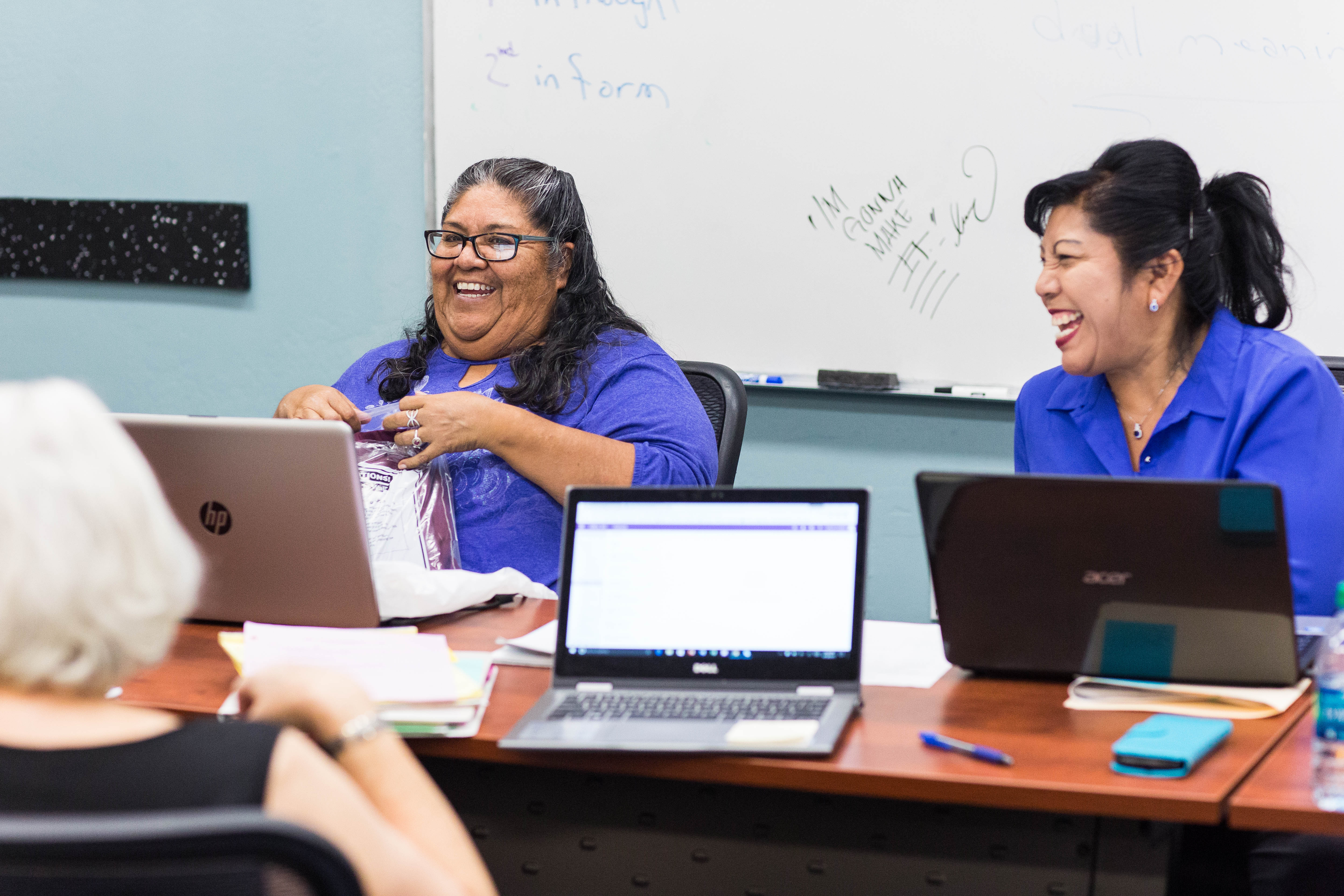ASU partnership helps to re-energize the teaching of Pima culture, language
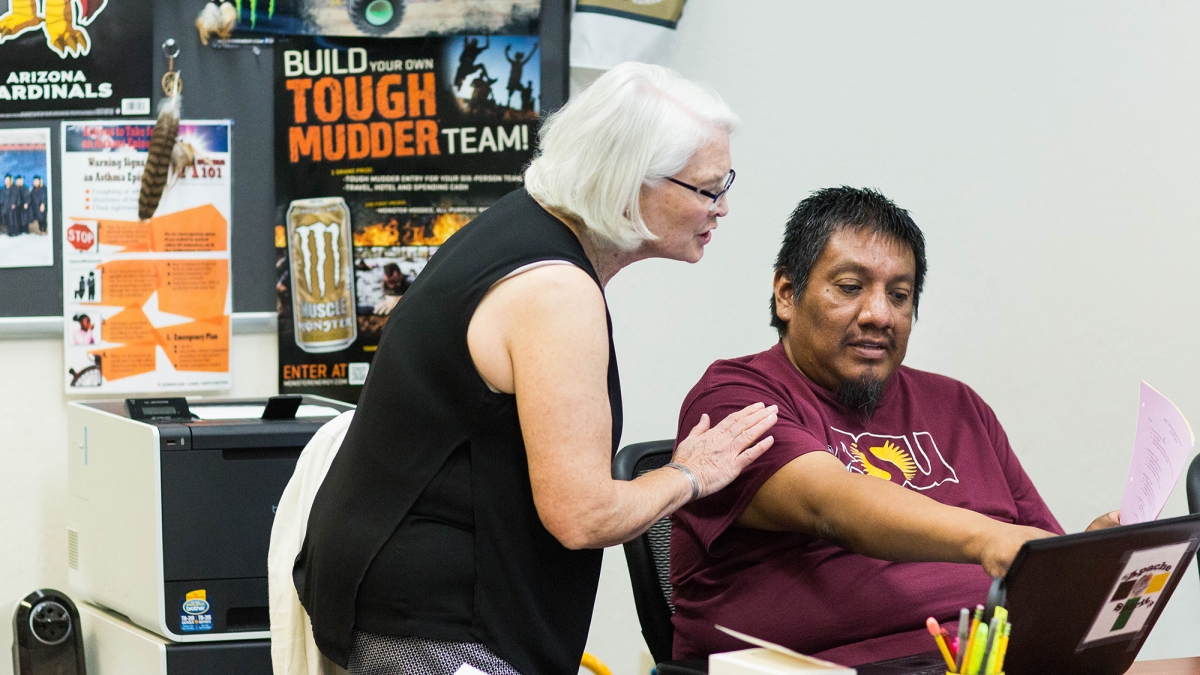
Native American communities across the U.S. face pressures most of mainstream society never considers, but a unique group of ASU students is helping solve two of the most pressing issues on their reservation: the preservation of identity and language.
Studies have shown that Native students who have a strong sense of their culture and language from an early age do better in school. Still, indigenous languages in North America are disappearing as tribes grapple with how to integrate while maintaining a sense of identity.
To that end, the Gila River Culture and Language Teacher Cohort has emerged from a partnership between the Arizona State University Center for Indian Education and the Gila River Indian Community Tribal Education Department, a first-of-its-kind program that trains future teachers on their home reservation with a focus on tribal history and keeping alive the Akimel O’otham language.
Here’s a look at the group, what they’ve done and what they hope comes next.
Coursework and capstones
Starleen Somegustava reviews her group's capstone project, which focuses on traditional language proficiency, with instructor Deborah Chadwick during the cohort's Tuesday evening class.
The three-year program for Gila River Indian Community teachers offers standard courses, including science, philosophy, sustainability, gender roles and border politics. It also features curriculum that covers career development, eco-community ethics, tribal history and culture, history of American Indian Education, basic and conversational communication, reading, writing and speaking.
The capstone is separated into two projects:
O'otham Culture and Language Materials — Students have collected and curated materials for use in Pima culture classes. They have also created a database for the resources, which any teacher on the reservation about a half-hour south of Phoenix can access.
Compilation/Evaluation of Parent Language Surveys — Students are analyzing data on parents' language knowledge. They'll create a plan for future Akimel O'otham language classes for the community.
After graduation, five members of the cohort will continue on another year to earn their master’s degrees at ASU's New College of Interdisciplinary Arts and Sciences.
The players
Gila River cohort members work on their capstone project with project director Deborah Chadwick at Casa Blanca Community School.
Nina Allison (BA/MA) — Teacher for Gila River Indian Community's Early Education. "I'm the first in my family to go to a university, and I'm happy with what I've accomplished. I want to teach students what I know, extend their language and establish a classroom where my students are totally immersive."
Hudunigsihbani Antone (BA) — Teaching assistant at St. Peter Indian Mission School, Bapchule, Arizona. "I thought once I was a mom, that was it. This degree is really for my kids. It's also a big stepping-stone for other single moms. It means I have more opportunities, and I will help create more opportunities for others."
Priscilla Espinoza (BA/MA) — Parent educator for Family and Child Education in the Bureau of Indian Education, Casa Blanca Community School. "I heard about the program and thought, 'It's my turn.' I spent many years raising my family and felt it was time to do something for myself. The degree will allow me to continue to help my community and my people. I have the gift of gab, and I'll use it to motivate others."
Marcella Hoover (BA/MA) — Culture teacher at Sacaton Middle School, Sacaton, Arizona. "When the program was initially offered, my first thought was, 'I can't believe I'm actually going to a university!' Once I get the degree, my plans won't really change much. I will continue to be there for my students and the children of our community."
Arlanna Jackson (BA) — Administrative assistant for Gila River Indian Community Tribal Education Department. "Teaching is something I've always wanted to do, and I have the passion for it. I want to help revitalize through songs. Our language is important because it identifies who we are as a people."
Donovan Kyyitan (BA) — Teaching assistant at St. Peter Indian Mission School, Bapchule, Arizona. "My initial reaction to this offering was, 'Finally! Do it now and jump on board.' I want to see our language prosper in the classroom where it's fully in our native tongue with no English."
Starleen Somegustava (BA/MA) — Culture specialist with the Gila River Indian Community's Head Start Program. "Once I get my master's, I would like to teach culture and language in high schools because it's not currently being taught at that level."
Edwardine Thomas (BA/MA) — Parent educator for Family and Child Education in the Bureau of Indian Education. "I'm going to continue to work with both students and parents because a lot of them are not fluent. My ultimate wish is to open a day care with full immersion."
Language
Bryan McKinley Jones Brayboy, President’s Professor, director of the Center of Indian Education and ASU’s special adviser to the president on American Indian affairs, said that “one of the most pressing issues for tribal nations and communities today is the protection, reclamation and strengthening of their tribal languages and concomitant cultures.”
He added that ASU President Michael Crow wants the university to “support tribal nations in achieving futures of their own making.”
With this in mind, the cohort that came together three years ago is working their plan to help preserve the culture and language in their Native community of about 20,000.
Anthony Gray, cultural coordinator for the Gila River Indian Community, said he has seen an uptick from Native youth who want to know more about their history and language.
"They recognize that culture and language grounds them and gives them roots," Gray said. "As long as those roots are strong, we'll stay resilient and always be here."
He called the Akimel O’otham language "a gift."
Mentoring
Mentor Samuel Catanach (right) discusses the group's capstone project with students (from left) Priscilla Espinoza, Hudunigsihbani Antone and Arlanna Jackson during their Tuesday evening course at Casa Blanca Community School.
Samuel Catanach, a graduate student with ASU's College of Liberal Arts and Sciences and one of two academic mentors serving the cohort, said interacting with the group has also been a gift.
"There's a broad age range of the cohort members, and it's really been cool to see how everybody is working together and seeing the older ones do particularly well," Catanach said. "I learn just as much from them as they do from me."
The mentors are ASU graduate students in the College of Liberal Arts and Sciences. They meet weekly with the eight students. They tutor them in writing and organizational skills, and they work with course instructors in providing additional student support on major assignments.
Graduation
Edwardine Thomas (left) couldn't be happier to show off her graduation robe Tuesday evening at Casa Blanca Community School.
Two celebrations are better than one, and the Gila River Culture and Language Teacher Cohort will be recognized twice.
The first graduation ceremony will be take place on May 4 on the Gila River Indian Reservation. In addition to Brayboy, dignitaries will include Gila River Gov. Stephen Roe Lewis, Lt. Gov. Monica Antone and Marlene Tromp, dean of the New College of Interdisciplinary Arts and Sciences.
Students will receive their diplomas at ASU's American Indian Convocation on May 10 at ASU Gammage on the Tempe campus.
Top photo: Cohort leader Deborah Chadwick and Donovan Kyyitan are getting ready for graduation next month. Kyyitan says he wants to lead classes in his native language with no English. Photos and video by Deanna Dent/ASU Now
More Arts, humanities and education

School of Social Transformation faculty member assumes new title with NSF
School of Social Transformation faculty member and Founding Executive Director of the Center for Gender Equity in Science and Technology (CGEST) Kimberly Scott is accepting a new position…

ASU's Neal Lester reflects on life, death of poet Nikki Giovanni
When Neal Lester heard on Monday that poet and activist Nikki Giovanni had died, the news hit hard.Lester, the founding director of Arizona State University’s Project Humanities and a Foundation…

Learning by stepping outside
By Adriana MaestasAmid a world increasingly captivated by all things digital, more than 200 Arizona teachers have crafted immersive educational experiences that nudge students to step away from their…
